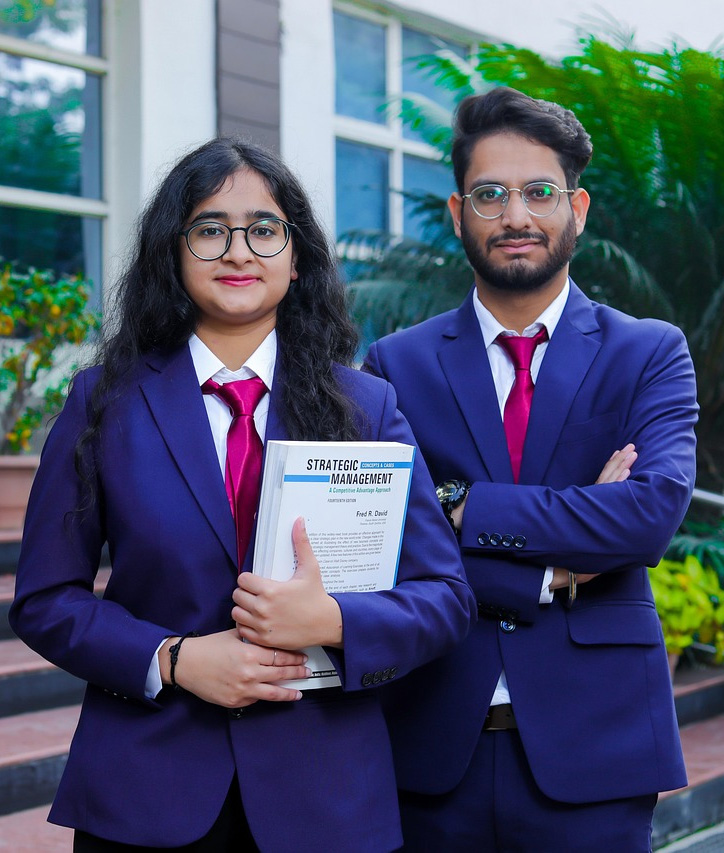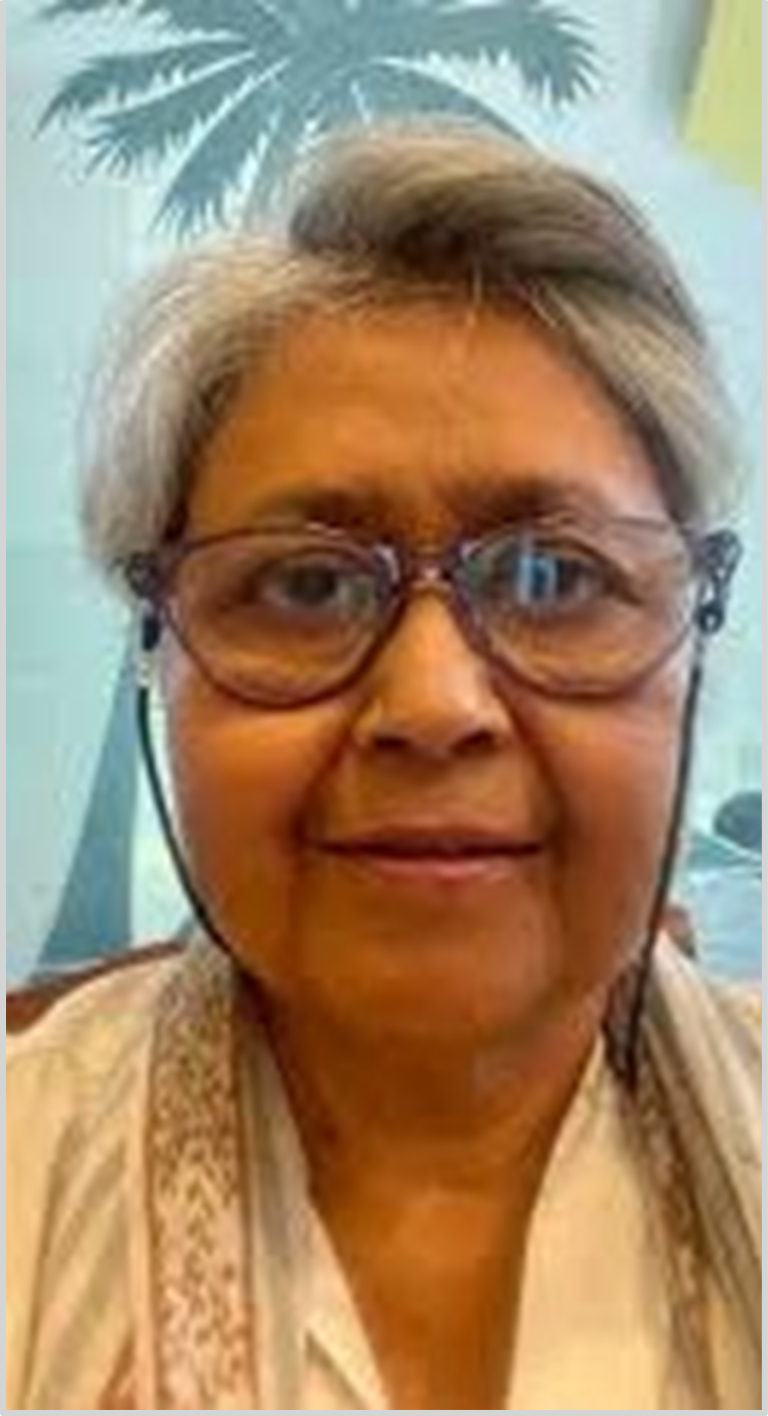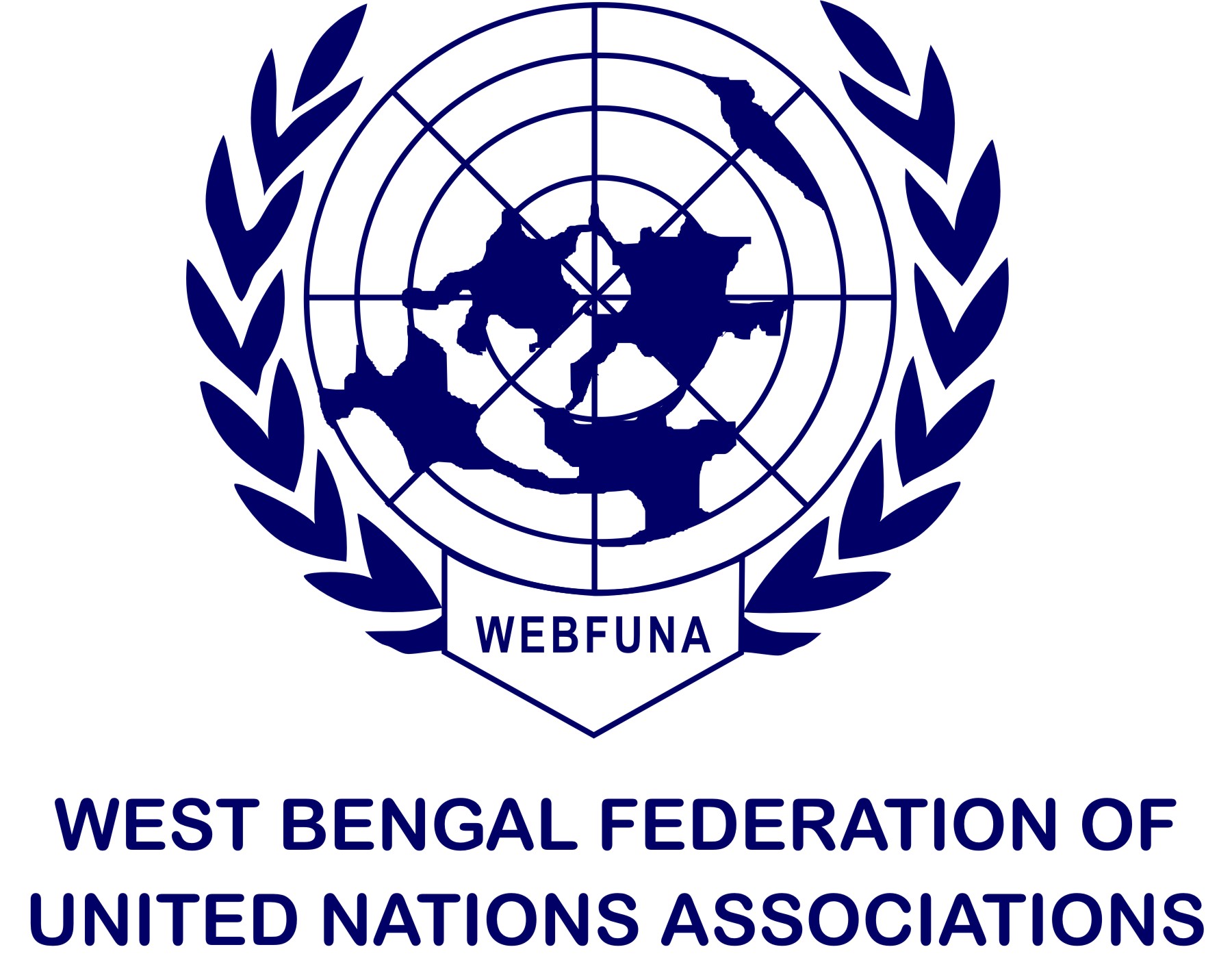TIPS

About Us
The Tagore Institute for Peace Studies (Tips) is an interdisciplinary, inclusive and globally-oriented academic and research centre inspired by the lives, philosophies and educational ideals of global apostles of peace. Tips aims to explore the full spectrum of peace: from inner transformation and interpersonal ethics to community resilience, global diplomacy, social justice and environmental harmony.
The Tagore Institute for Peace Studies (Tips) is a globally engaged academic and research centre that embraces interdisciplinary and inclusive approaches, drawing inspiration from the teachings, values and educational visions of renowned peace advocates from around the world and the charter of the United Nations.
A platform of the West Bengal Federation of United Nations Associations, Tips is leading a transformative educational initiative designed for young, aspiring peace-builders. Through carefully curated lectures and mentorship from global experts and communicators committed to sustainable change, Tips offers an engaging learning journey on a story-telling mode. Its mission is to redefine peace as a powerful force for influence and societal transformation.
So, if you are ready to move beyond studying conflict and start shaping solutions, Tips will empower you to rewrite the narrative.
* Because the world needs bridge-builders, not bystanders;
* Because Peace is doable; Conflict is avoidable;
* Because peace-building begins at home and school
For The Students
Peace and Conflict related issues in myriad forms are too conspicuous today to be ignored. While Peace & Conflict Studies has evolved as a field of study and research in the academia, there are issues related to the subject which confront all of us as social animals almost on a everyday basis. In this sense it is not only a distant academic discourse, with which we can engage at our pleasure. The Tagore Institute's decision to offer a course on Peace & Conflict, is specially designed, catering to mostly young minds, still in school, as young adults, dealing with these issues often get bewildered and sometimes victimised. The course is designed for such young minds to offer clarity and offer a narrative that would link up what they face as everyday social problematic with established theories and paradigms on the subject in an easy and attractive manner.
Peace is not merely a distant goal that we seek but a means by which we arrive at that goal.
– Martin Luther King Jr. ,
Civil Rights Activist
Mission & Vision
- To impart quality education and conduct research in peace studies, collaborating with academic and policy-oriented institutions and grassroots bodies in India and abroad for strategic understanding and technology led-innovations and facilitating institutional relations with the United Nations System.
- To train future diplomats and community leaders with courses designed and presented by a world-class faculty from amongst the top practitioners building peace around the world, leading diplomats, outstanding academicians and communicators.
- To foster a world where peace is not merely the absence of war but the presence of justice, dignity, empathy, and creativity.
- To examine peace-building in the context of current strife and develop a core of knowledgeable, ethical and skilled professionals to lead transformative and sustainable change in local and global peace and development efforts.

Message From the Founder

- Chairman, Indian Federation of United Nations Associations (IFUNA), New Delhi, an international NGO having Category-I Consultative Status with UNECOSOC.
- Honorary Consul of the Republic of Belarus in Kolkata.
- Former Chairman, MAKAIAS (Maulana Abul Kalam Azad Institute of Asian Studies) – An autonomous body under the Ministry of Culture, Government of India.
- Former Chairman, CENERS-K (Research Centre for Eastern and North Eastern Regional Studies-Kolkata).
- Former Deputy Secretary-General & Director, Asia Pacific Regional Office of the World Federation of UN Associations (WFUNA), Geneva.
- Chief Rapporteur & Chairman of Drafting Committee and a member of Tripartite Steering Committee of the 1999 Seoul International Conference of NGOs organised by the UN Department of Public Information jointly with Kyung Hee University, Republic of Korea, held at Seoul from 10 to 15 October 1999.
- Past President, Bharat Chamber of Commerce (Estd 1900).
- Scholarly Achievement Award, The Institute of Oriental Philosophy, Japan.
- Editor/Co-editor of 10 books on the UN, including a two-volume compendium on India in the UN General Assembly; UN: 100 Popular Questions & Answers (3 editions), UN: A Journey from Hope to Despair, and others.
- Chairman, Indian Federation of United Nations Associations (IFUNA), New Delhi, an international NGO having Category-I Consultative Status with UNECOSOC.
- Honorary Consul of the Republic of Belarus in Kolkata.
- Former Chairman, MAKAIAS (Maulana Abul Kalam Azad Institute of Asian Studies) – An autonomous body under the Ministry of Culture, Government of India.
- Former Chairman, CENERS-K (Research Centre for Eastern and North Eastern Regional Studies-Kolkata).
- Former Deputy Secretary-General & Director, Asia Pacific Regional Office of the World Federation of UN Associations (WFUNA), Geneva.
- Chief Rapporteur & Chairman of Drafting Committee and a member of Tripartite Steering Committee of the 1999 Seoul International Conference of NGOs organised by the UN Department of Public Information jointly with Kyung Hee University, Republic of Korea, held at Seoul from 10 to 15 October 1999.
- Past President, Bharat Chamber of Commerce (Estd 1900).
- Scholarly Achievement Award, The Institute of Oriental Philosophy, Japan.
- Editor/Co-editor of 10 books on the UN, including a two-volume compendium on India in the UN General Assembly; UN: 100 Popular Questions & Answers (3 editions), UN: A Journey from Hope to Despair, and others.
Dear Young Peace-builders,
Welcome to this journey with the Tagore Institute of Peace Studies. We like to call it TIPS because we believe it will tip the scales in favour of a world where Peace is the Path; where we learn to understand the world even as we learn to understand ourselves.
India is a land of peace. We learn of it in our scriptures. The Yajur Veda and Upanishads speak of Dyauh Shantih:
ॐ द्यौः शान्तिः अन्तरिक्षं शान्तिः पृथिवी शान्तिः आपः शान्तिः ओषधयः शान्तिः वनस्पतयः शान्तिः विश्वेदेवाः शान्तिः ब्रह्मा शान्तिः सर्वं शान्तिः शान्तिः एव शान्तिः सा मा शान्तिः ऋधिः ॥ ॐ शान्तिः शान्तिः शान्तिः ॥
Om, Dyauh shantir antariksám shantiḥ | Pṛthivī shantir āpas shantiḥ | Oṣadhayaha shantiḥ | Vanaspatiḥ shantiḥ | Vishvedevaḥ shantiḥ | Brahmā shantiḥ | Sarvam shantiḥ | Shantiḥ eva shantiḥ | Sā mā shantiḥ ṛdhī |
“Dyauh Shanti” is a prayer for universal peace. At TIPS, we are privileged to have Prof. Suranjan Das as Founder Chairman — a doyen of academia who has served at the helm of two of India’s top universities: Calcutta and Jadavpur.
Accordingly, our introductory six-week course will deal with some broad concepts:
- How India’s Pluralist Democracy Sustains Peace Amidst Structural Conflicts
- Roots of Terrorism: Living Beyond Limits – The Greed Factor
- The Global Peace Architecture
- Whither International Peace & Security
- The Way Ahead: The Art of Communicating Peace
We will explore stories of peace-builders across the world — some even young people just like you. We will help you reflect on inner peace and re-imagine a world that is more just, inclusive, and compassionate.
We understand that you encounter a world full of rage and division, where a victory in a cricket tournament becomes a graveyard for the youth. We wish for you to become a change-maker in any vocation you choose — because success in life is not a rat race, but about team building, empathy, fair play, and ultimately, peace of mind.
This is a fabulous journey — and it starts here, with you.
– Sitaram Sharma
Founder President,
The Tagore Institute of Peace Studies
From the Chairman's Desk

- Vice-Chancellor of Adamas University, Kolkata.
- Former Vice-Chancellor of Calcutta University and Jadavpur University, Kolkata, and Honorary Visiting Professor at the University of Exeter, UK.
- Authored six monographs, co-authored seven books, edited/co-edited nine volumes, and published thirty-nine articles in refereed journals.
- Fellow of the Royal Asiatic Society, London.
- Chairman, Board of Governors, Centre for Studies in Social Sciences.
- Was a Distinguished Fellow at the Australia India Institute, University of Melbourne; Honorary Professor at Hull University; Visiting Professor at the British Academy; Visiting Scholar at Maison Des Sciences De L’Homme (Paris), Mershon Centre of Ohio State University (USA), and Oxford Brookes University (UK).
- Served in the University Grants Commission, the Indian Council of Historical Research, and the Indian Council of Cultural Relations.
- Former Vice-Chairman, Board of Trustees, Indian Museum, Kolkata.
- Former Member, Executive Committee, Nehru Memorial Museum and Library, New Delhi.
- Former Member, Governing Body of the Indian Council of World Affairs (ICWA), New Delhi.
- Former Member, Executive Council, National Assessment and Accreditation Council (NAAC), Bengaluru.
- Former President, Association of Indian Universities, New Delhi.
- Vice-Chancellor of Adamas University, Kolkata.
- Former Vice-Chancellor of Calcutta University and Jadavpur University, Kolkata, and Honorary Visiting Professor at the University of Exeter, UK.
- Authored six monographs, co-authored seven books, edited/co-edited nine volumes, and published thirty-nine articles in refereed journals.
- Fellow of the Royal Asiatic Society, London.
- Chairman, Board of Governors, Centre for Studies in Social Sciences.
- Was a Distinguished Fellow at the Australia India Institute, University of Melbourne; Honorary Professor at Hull University; Visiting Professor at the British Academy; Visiting Scholar at Maison Des Sciences De L’Homme (Paris), Mershon Centre of Ohio State University (USA), and Oxford Brookes University (UK).
- Served in the University Grants Commission, the Indian Council of Historical Research, and the Indian Council of Cultural Relations.
- Former Vice-Chairman, Board of Trustees, Indian Museum, Kolkata.
- Former Member, Executive Committee, Nehru Memorial Museum and Library, New Delhi.
- Former Member, Governing Body of the Indian Council of World Affairs (ICWA), New Delhi.
- Former Member, Executive Council, National Assessment and Accreditation Council (NAAC), Bengaluru.
- Former President, Association of Indian Universities, New Delhi.
“True peace is not merely the absence of tension. It is the presence of justice.”
The 2030 Agenda for Sustainable Development affirmed that without peace, there is no sustainable development. It is in this context that peace studies entered academic discourse as an interdisciplinary field dedicated to understanding and building peace. The Tagore Institute for Peace Studies must be seen in this light, and we are grateful to Mr. Sitaram Sharma for setting the ball rolling.
Peace and conflict resolution studies are not new. But the field witnessed a shift when it expanded beyond war and balance of power to include structural issues like justice, equality, poverty, and the environment — now widely recognised as the roots of violence. Thanks to scholars like Johan Galtung, we now differentiate between negative and positive peace.
Negative peace refers to the absence of direct violence or war, while positive peace focuses on transforming conflict without violence by addressing deeper issues like injustice, identity, and unmet human needs.
Peace studies integrates economics, sociology, and environmental science to understand how these factors intersect in conflict. It promotes positive-sum outcomes rather than zero-sum confrontations.
A major strength of peace studies today is its practical orientation. Far from being abstract, it offers tools applicable to real-world challenges — such as negotiating peace accords, disarming combatants, and rebuilding societies. Peace scholars have developed frameworks for preventive diplomacy, conflict resolution, and post-conflict reconciliation through truth commissions and dialogue.
We take inspiration from institutions like the Kroc Institute and the University of Peace. TIPS also intends to collaborate with projects like the Global Peace Index and early warning systems. Our aim is to transform peace studies into peace action, building a synergy between academics and practitioners.
Building peace requires the same level of commitment that nations devote to war. We must also recognise calls to decolonise peace studies, which has largely developed in the West and reflects Western frameworks. As we decolonise curricula, we must include knowledge from the Global South — African conflict resolution traditions, Buddhist and Gandhian nonviolence in Asia, and Latin American concepts like buen vivir that link peace to community and the environment. Indian traditions across faiths have long embodied such a holistic view of peace.
We must revive these ideals as healing palms for a conflict-ridden world. Peace studies is where heart meets brain, combining the moral desire for peace with rigorous methods to achieve it. TIPS remains committed to this broader vision.
Tagore called us to unite in the fellowship of understanding and service. As he reminded us, “You cannot cross the sea merely by standing and staring at the water.” At TIPS, we are committed to translating that call into meaningful action.
– Suranjan Das Founder Chairman, The Tagore Institute of Peace Studies
From the Hony. Adjunct Faculty, TIPS

Postmodernist times have further added more complexities by introducing new sub-themes within the original quest for the subject. One obvious takeaway is that there is an increasing necessity to frame Peace Studies teaching and research through non-Western idioms.
The newly established Tagore Institute takes an important step in this direction by engaging with young minds and taking a fresh route in our quest to understand the basic goals of Peace Studies.
While challenging, such engagement would be immensely successful if it triggers curiosity in the minds of these young students—enabling them to project their own versions of Peace Studies, leading to further enrichment and generation of knowledge.
Prof. Shantanu Chakrabarti
Hony. Adjunct Faculty, TIPS
Professor, Dept. of History
University of Calcutta
From the Dean of Studies

We are powered by a vision for a world where conflict is not inevitable, where justice is not a privilege, and peace is not just a pause between wars. Where people flourish because their future leaders have learned how to build and sustain peaceful societies.
That was Tagore’s vision. And that is what drives TIPS:
To ignite a vision—not just inaugurate an institution.
We believe peace is not wishful thinking. It is a discipline, a craft, a commitment.
It must be studied, practiced, and institutionalised—like medicine, law, or engineering. Yet we rarely ask:
Who is being trained to build peace?
Who is preparing the next generation to resolve conflict with compassion? To rebuild after violence?
That is why TIPS.
Because peace cannot be an afterthought; it must be a profession, a priority, a practice.
Our curriculum will explore the roots of violence, practices of reconciliation, and intersections of identity, justice, and the environment. Our programmes will span classrooms and conflict zones, theory and fieldwork, local and global.
TIPS is our commitment to hope.
Because peace is not only possible, it is teachable, measurable, achievable.
So let TIPS be a beginning.
Where knowledge meets empathy and action follows purpose.
Welcome aboard.
Warm regards,
Aditi Roy Ghatak
Dean of Studies
ALL Academic Programs
Certification Course
Tips has two certification programs - one month and 6 months - and a one year diploma course in its inaugural offering. They are structured as auxiliary courses that add value to the learners curriculum vitae and prepare students for a deeper engagement with the peace space and a prospective career in peace-building.

1. Curriculum Framework
Fundamental Principles of Peace — How India’s Pluralist Democracy sustains peace amidst structural conflicts
Resource beyond requirement: When Need Ends, Greed Begins — Understanding and addressing conflict at the grassroots.
The League of Nations: A Pioneering Attempt at Global Peace
The United Nations Organisation (UN): Built to build global peace
Conflicts worldwide 2025
Not A Peaceful World: Geographical, Environmental, Political and Economic causes of war
Way Ahead: International Peace and Security
The program duration for our certification course is of one month, starting from July-August, 2025.
Eligibility for our certification course requires a student to pursue education from classes 9 to 12. This can be from any recognised board/university.
Cost inclusive of all taxes in Indian rupees ten thousand.
Higher Certification Course
Tips has two certification programs - one month and 6 months - and a one year diploma course in its inaugural offering. They are structured as auxiliary courses that add value to the learners curriculum vitae and prepare students for a deeper engagement with the peace space and a prospective career in peace-building

- Why big powers destroy the fragile peace fabrics
- Multi-polarity and great power rivalry
- In search of: sustainable development
- The way ahead: The art of communicating peace
- Training module: Inadequate addressing of root causes
- Veto power: Blocking UN actions
- Unilateral military interventions
- The changing Global Order
- Pathaways towards strengthening international peace and security
- The responsibility of journalists and social societies
The program duration for our Higher certification course is of six months.
Eligibility for our certification course requires a student to pursue education from classes 9 to 12. This can be from any recognised board/university.
Cost inclusive of all taxes in Indian rupees fifty thousand.
Diploma Course
Tips has two certification programs - one month and 6 months - and a one year diploma course in its inaugural offering. They are structured as auxiliary courses that add value to the learners curriculum vitae and prepare students for a deeper engagement with the peace space and a prospective career in peace-building

- Creation of the Global Peace Architecture
- Absence of multiculturalism and
jingoistic nationalism - Religious, ethnic conflicts and tensions
Profits from perpetual war: Armament industry - Absence of peace literacy
- Conflicts worldwide: 2025
- Why did the League of Nations collapse?
- The United Nations Organisation: Built to Build Global Peace
- Why does the UN still matter
- Inequality and Exclusion
The program duration for our Diploma Course is that of one year.
Eligibility for our certification course requires a student to pursue education from classes 9 to 12. This can be from any recognised board/university.
Cost inclusive of all taxes in Indian rupees One lakh.
The Tagore Institute of Peace Studies (TIPS)
A Public Charitable Trust , A West Bengal Federation of United Notions Associations Platform for Inclusive teaming Aided by the Dwarkadas Sitaram Sharma Trust
- Regd. Office : Latika, Ground Floor 9/3 Hungerford Street , Kolkata-700 017, India
- Write to us : TIPS, Suite 2, Abantika, 39, Lake Place, Kolkata 700 029 I India
- Email : tips.tagore2025@gmaiI.com
- Call : 033-2289 5400 / 03
ABOUT US
The West Bengal Federation of United Nations Associations (WEBFUNA) is affiliated to the Indian Federation of United Nations Associations (IFUNA) which, in turn, is a member of the World Federation of United Nations Associations (WFUNA).
QUICK LINKS
ALL CONTACTS
- "LATIKA" Ground Floor, 9/3 Hungerford Street, Kolkata 700 017, India
- (033) 2289-5400 / 2289-5403
- wbfuna@gmail.com
- wbfuna@gmail.com






